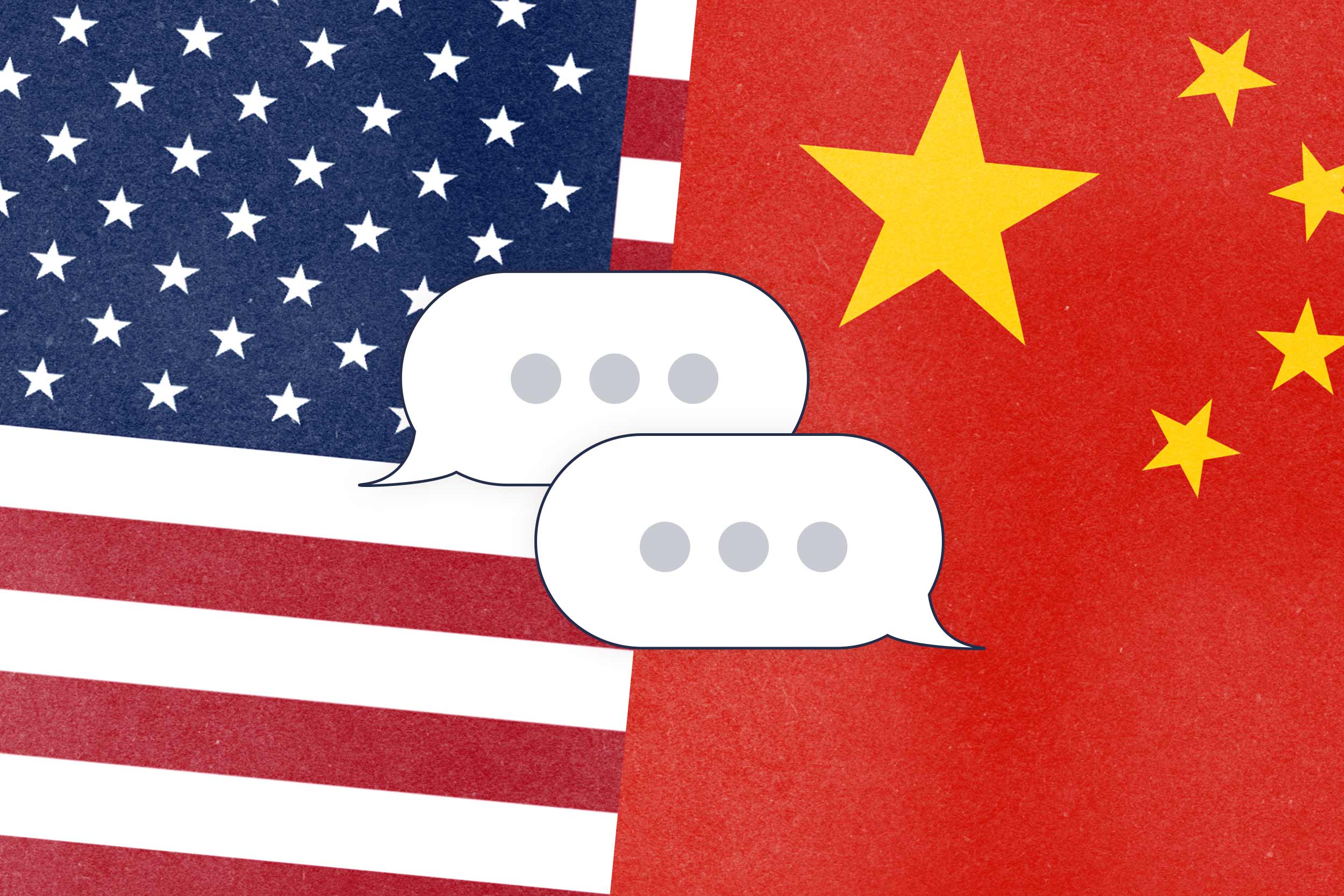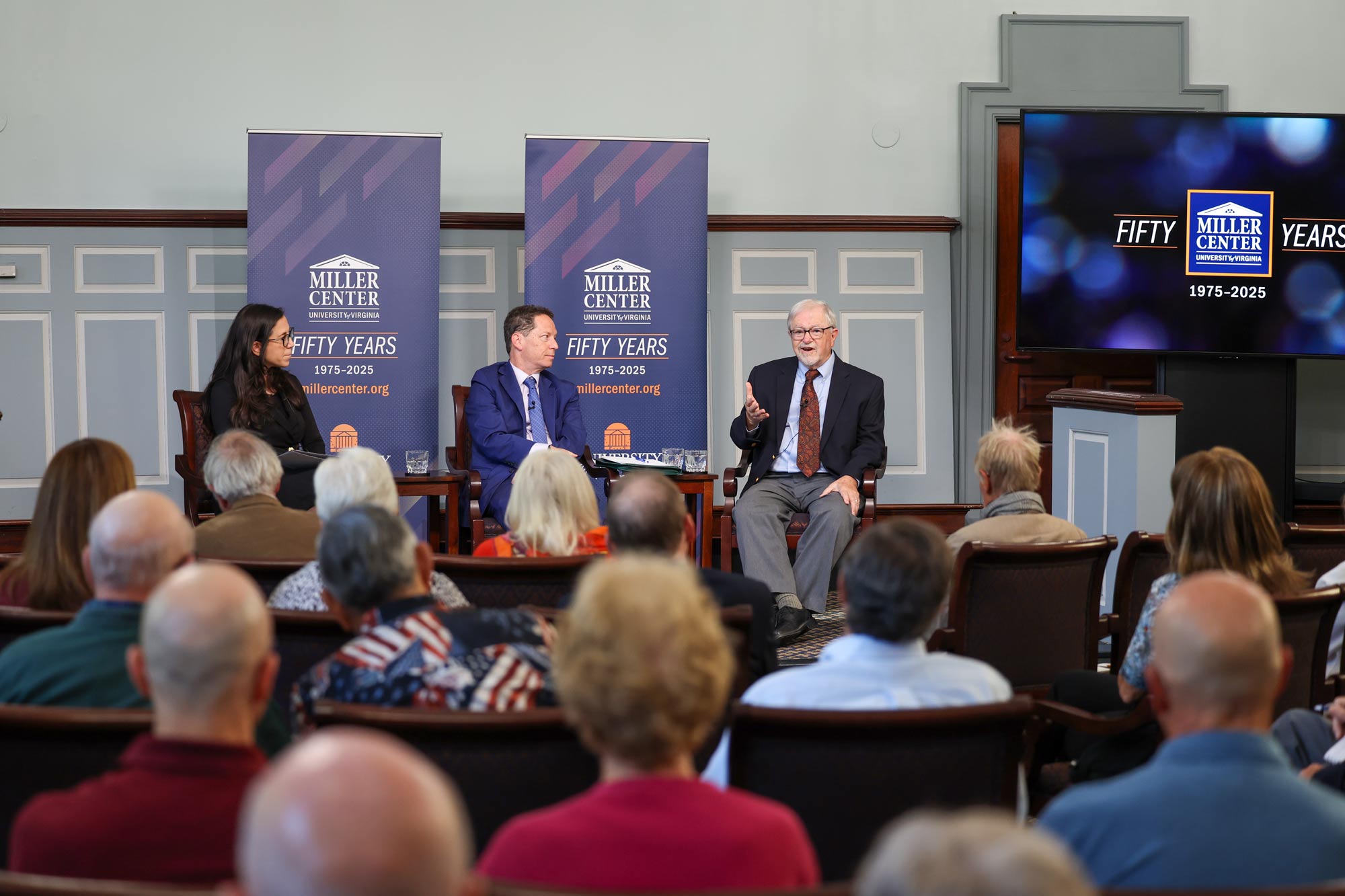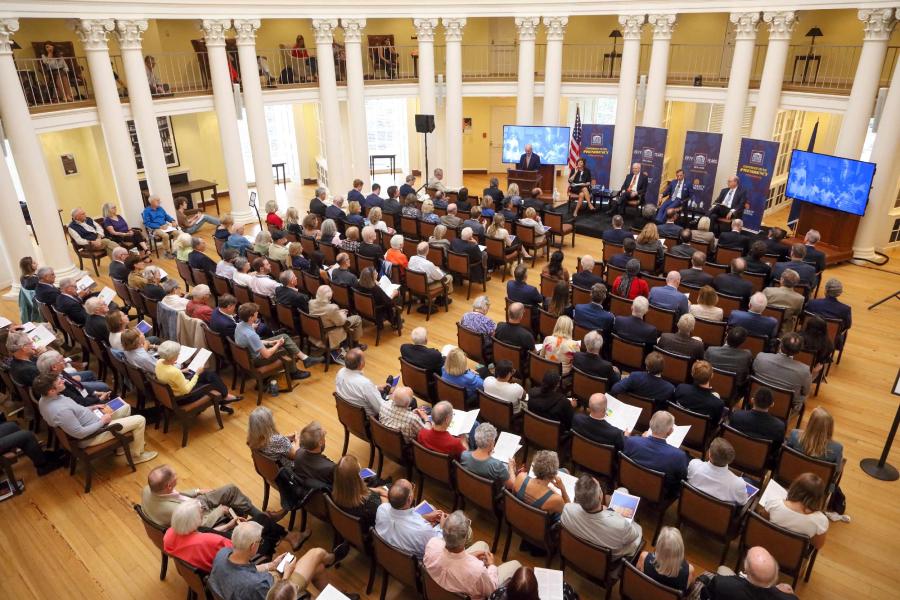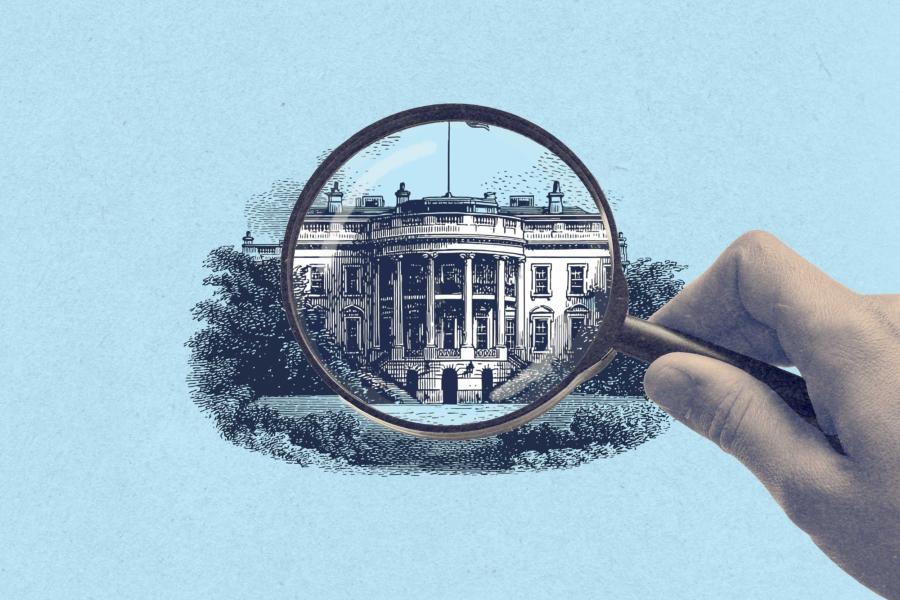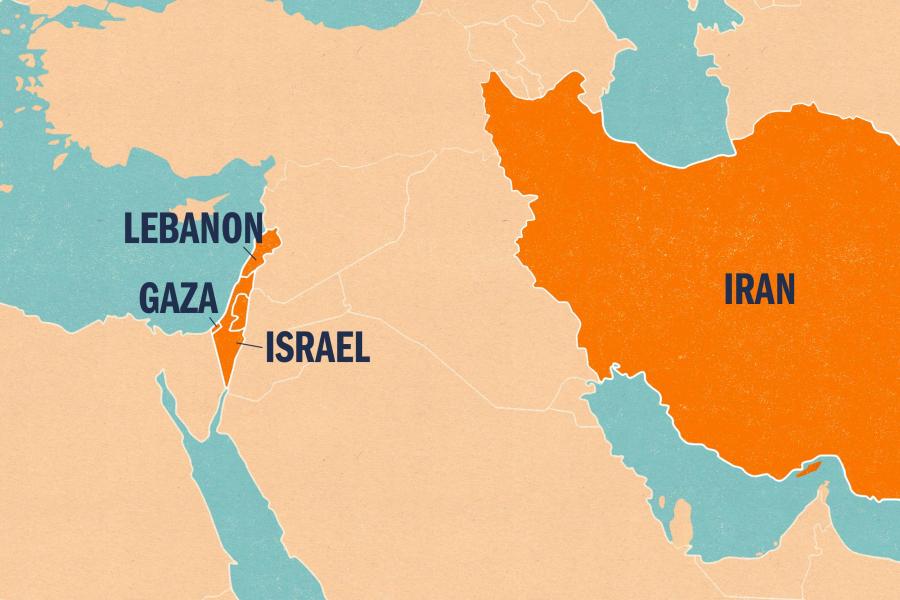Erratic tariffs, dueling trade restrictions and cultural misunderstandings have soured relationships between the United States and China, experts told a University of Virginia Miller Center for Public Affairs audience.
The experts said improving communication and learning more about the other are important steps to address the problem.
“Technically speaking, the relationship stinks,” said Scott Kennedy, senior adviser at the Center for Strategic and International Studies in Washington, and a UVA graduate.
“In just the last few weeks, both sides have been punching back and testing the other,” he added. “The U.S., at the end of September, came out with some new export controls, and then the Chinese, just a few days ago, came out with a whole new feature of export controls around rare earths to globalize the control of them.”
Rare earth minerals include more than a dozen metallic elements, including neodymium, scandium and yttrium, and are essential for technologies from computer chips to electric vehicles and high-tech military equipment. Although not that rare, they are difficult to mine and refine and China has invested heavily in the processing, giving it control of much of the world’s supply.
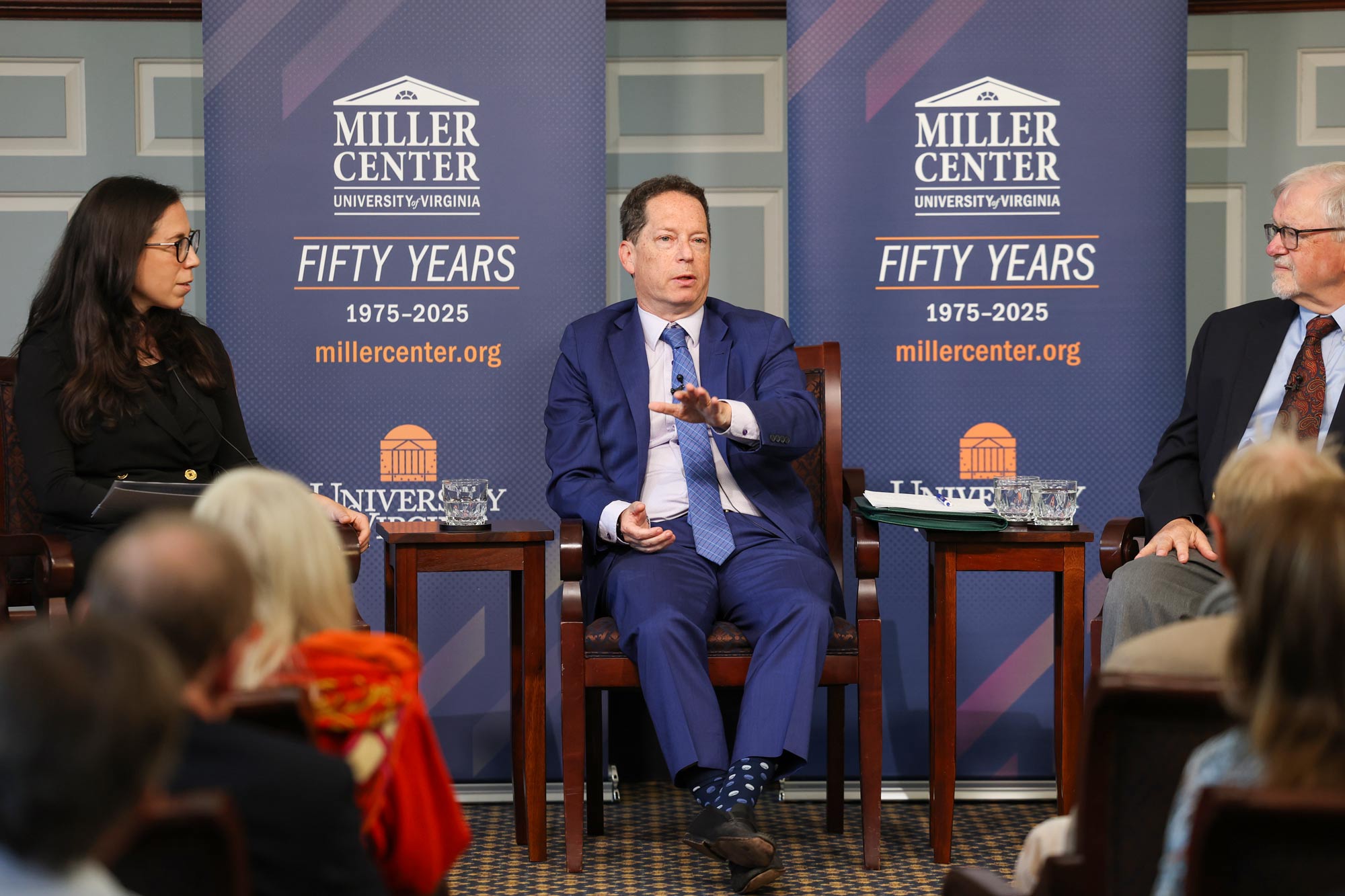
From left, Aynne Kokas, C.K. Yen Professor at the Miller Center and director of UVA’s East Asia Center, moderates the panel featuring Scott Kennedy, senior adviser at the Center for Strategic and International Studies in Washington, and Brantly Womack, professor of foreign affairs emeritus and Miller Center senior faculty fellow. (Photo by Matt Riley, University Communications)
Kennedy joined Brantly Womack, professor of foreign affairs emeritus and Miller Center senior faculty fellow, on Wednesday for the center’s panel discussion on “U.S.-China relations in Trump’s second term,” moderated by Aynne Kokas, C.K. Yen Professor at the Miller Center and director of UVA’s East Asia Center.
Womack concurred with Kennedy’s assessment of the relationship.
“I’m not going to be trying to present a bright side of things, because it does stink,” he said. “This rivalry between us and China has emerged and grown accepted by both sides over the last couple of years, and not just from Trump. Remember, President Joe Biden continued most of the attitude and policies of the first Trump administration toward China.”
Womack said both countries view the other as a potential rival and try to protect their interests through economic, political and other means.
“One aspect of that is to make sure the other side behaves the way it should, and you see that particularly in U.S. policy. Now you’re seeing the Chinese increasingly having the same type of attitude, with the rare earths policy being probably the best current example,” Womack said. “But how far can this go? Are we seeing maybe scene two in a play, with a train wreck in scene four?”
Kennedy said the U.S. and China face three major challenges in their relationship: competition over resources and global influence, conflicting security interests, and ongoing economic and trade tensions.
